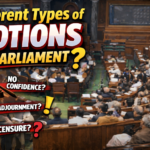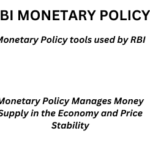Non Performing Assets dropped to 2.1 percent

The Reserve Bank of India (RBI) released a report on Non-Performing Assets(NPA) on Monday. As per the report, the gross non-performing asset (GNPA) ratio fell to a multi-decade low of 2.1 per cent.
LEARNING FROM HOME/ WITHOUT CLASSES/ BASICS
Following the global international norms and as per the recommendations made by the Committee on the Financial System (Chairman Shri M. Narasimham) RBI classify Non Performing Assets (NPA). And made provisions like prudential norms for income recognition, asset classification and provisioning for the advances portfolio of the banks.
NON PERFORMING ASSETS(NPA)
An asset, including a leased asset, becomes non performing when it ceases to generate income for the bank. NPA is a loan or advance for which the principal or interest payment remained overdue for a period of 90 days.
Banks required to classify NPAs further into Substandard, Doubtful and Loss assets.
- Substandard assets. Assets which has remained NPA for a period less than or equal to 12 months.
- Doubtful assets. An asset would be classified as doubtful if it has remained in the substandard category for a period of 12 months.
- Loss assets. A loss asset one where loss identified by the bank or internal or external auditors or the RBI inspection but the amount not written off wholly. RBI, “Loss asset considered uncollectible and of such little value that its continuance as a bankable asset is not warranted, although there may some salvage or recovery value.
The Reserve Bank of India is the supreme monetary and banking authority in the country. It keeps the cash reserve of all scheduled banks and hence known as Reserve Bank. It established on April 1, 1935 in accordance with the provisions of the Reserve Bank of India Act, 1934. Though originally privately owned, since nationalisation in 1949, the Reserve Bank fully owned by the Government of India. Its main function includes; formulate, implements and monitors the monetary policy. Prescribes broad parameters of banking operations within which the country’s banking and financial system functions. Manages the Foreign Exchange Management Act, 1999. Issues and exchanges or destroys currency and coins not fit for circulation,.Banker to the Government. It performs merchant banking function for the central and the state governments; also acts as their banker. RBI Governor Sanjay Malhotra.
| Category | Days Overdue |
| Standard | Asset Performing |
| Sub-Standard | Loss Asset |
| Doubtful | NPA ≤ 12 months |
| Unrecoverable/identified loss | NPA > 12 months |
RBI – Latest Guidelines on Non-Performing Assets (NPAs)
| Aspect | Current RBI Guideline (Latest Position) |
| Definition of NPA | A loan/advance becomes NPA when interest or principal remains overdue for more than 90 days |
| Applicability | Applies to term loans, cash credit, overdraft, bills purchased/discounted, agricultural loans (as per crop season norms) |
| Recognition Basis | Time-based (90 days overdue) – no discretion to banks |
| Income Recognition | Interest on NPAs cannot be booked as income unless actually realised |
| Asset Classification | 1. Standard Asset – Performing 2. Sub-standard – NPA up to 12 months 3. Doubtful – NPA > 12 months 4. Loss Asset – Identified as unrecoverable |
| Upgradation of NPA | Allowed only after full clearance of all overdue principal & interest |
| Provisioning (Existing IRAC norms) | Provisioning depends on category (Sub-standard / Doubtful / Loss) and is mandatory every quarter |
| Restructured Accounts | Can be classified as Standard only if restructuring is done before default and conditions are met |
| Wilful Defaulter Criteria | Borrowers who can pay but do not, divert funds, or dispose of secured assets without consent |
| Reporting Requirement | NPAs must be reported accurately in returns, financial statements, and to credit information companies |
| Monitoring | Banks must have automated, continuous monitoring systems for NPA identification |
| Supervisory Action | Misclassification or delay in NPA recognition attracts RBI supervisory penalties |
Major Upcoming Change (Approved in Principle)
| Aspect | Expected Credit Loss (ECL) Framework – Draft RBI Norms |
| Nature | Forward-looking provisioning model (replacing incurred-loss approach) |
| Stages | Stage 1: Low risk – 12-month ECL Stage 2: Increased risk – Lifetime ECL Stage 3: Credit-impaired – Highest provisioning |
| Coverage | Loans, debt securities, guarantees, off-balance-sheet exposures |
| Implementation Timeline | From 1 April 2027 with phased transition |
| NPA Definition | 90-day NPA rule continues unchanged |









0 Comments